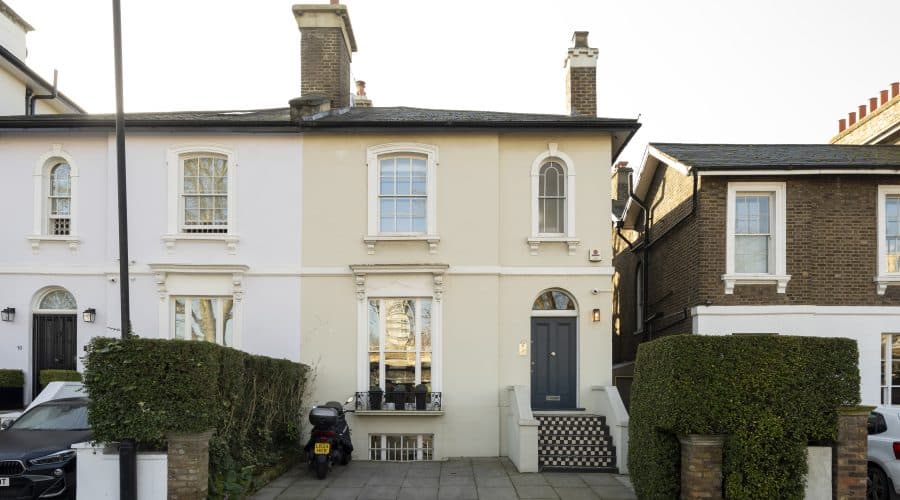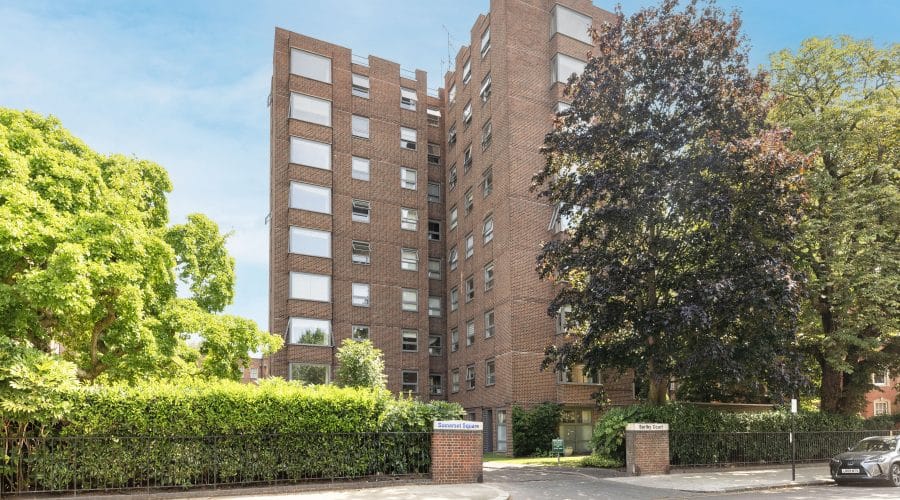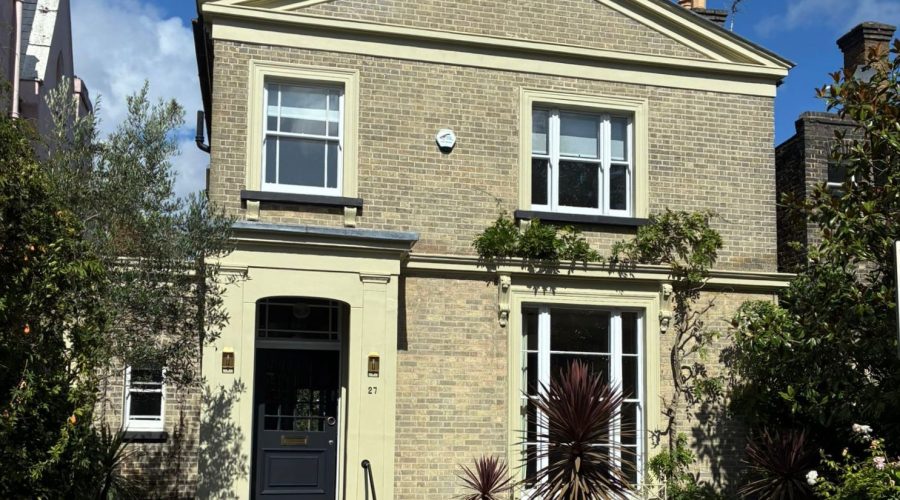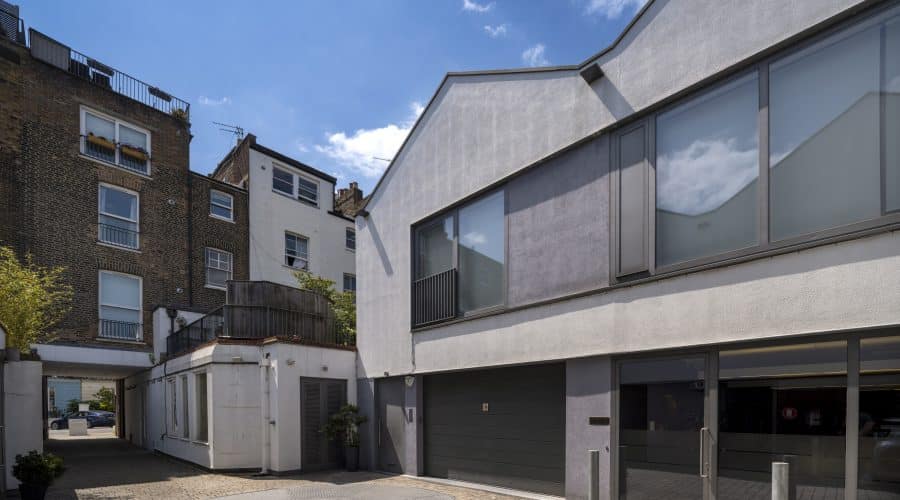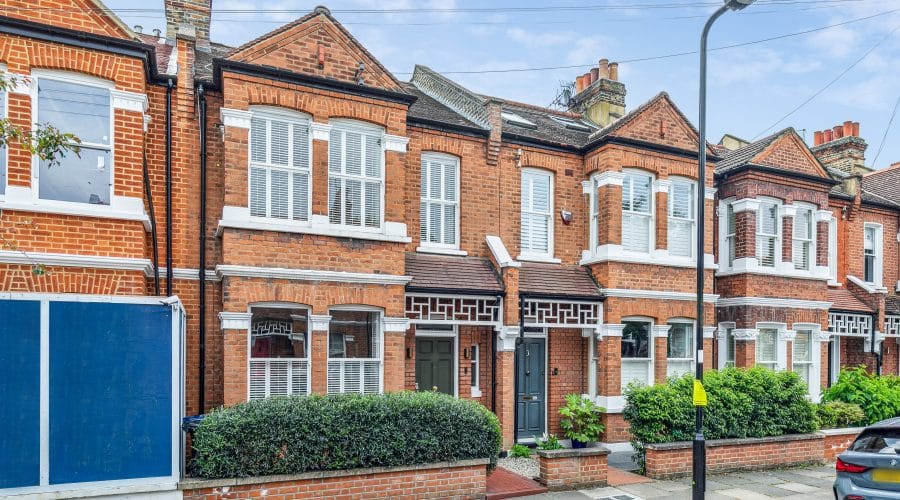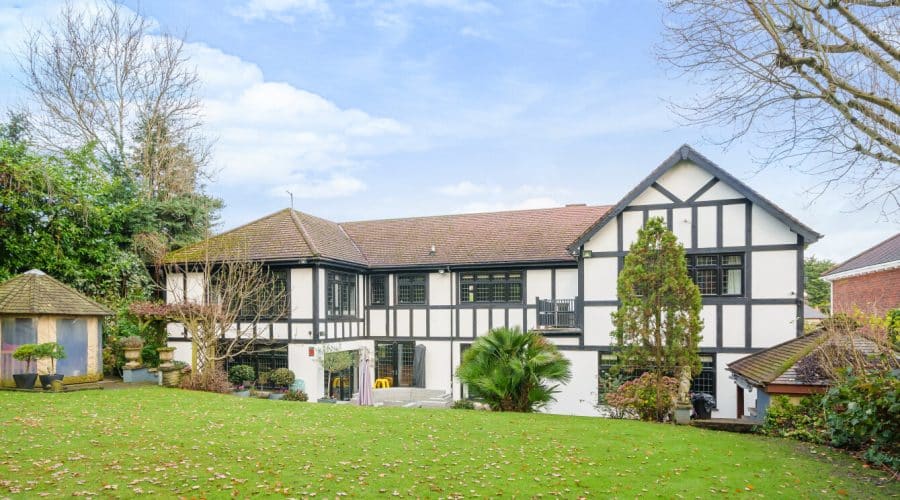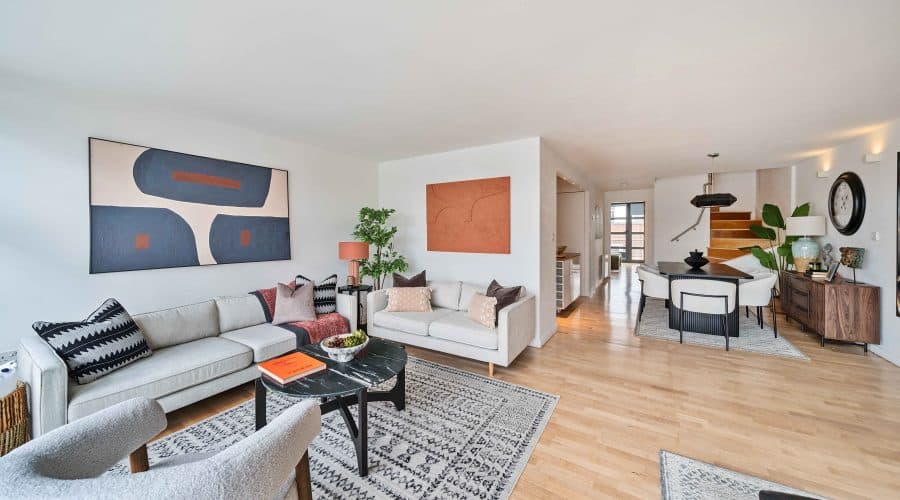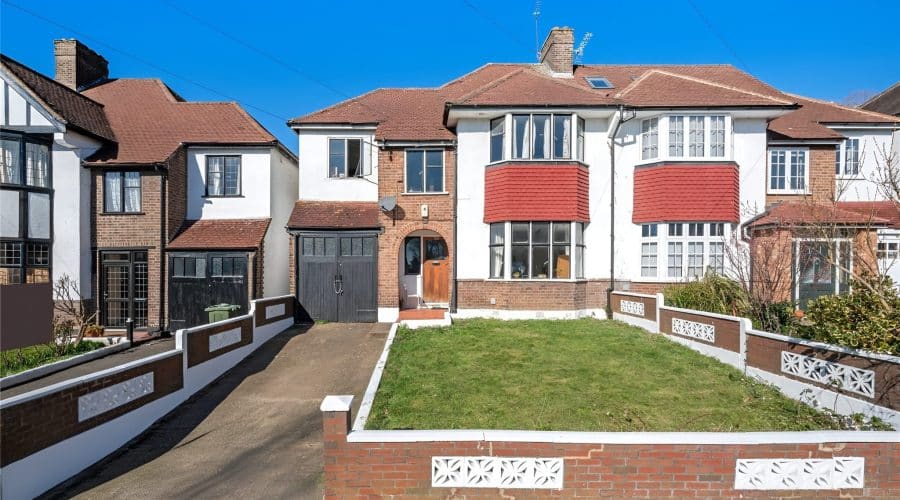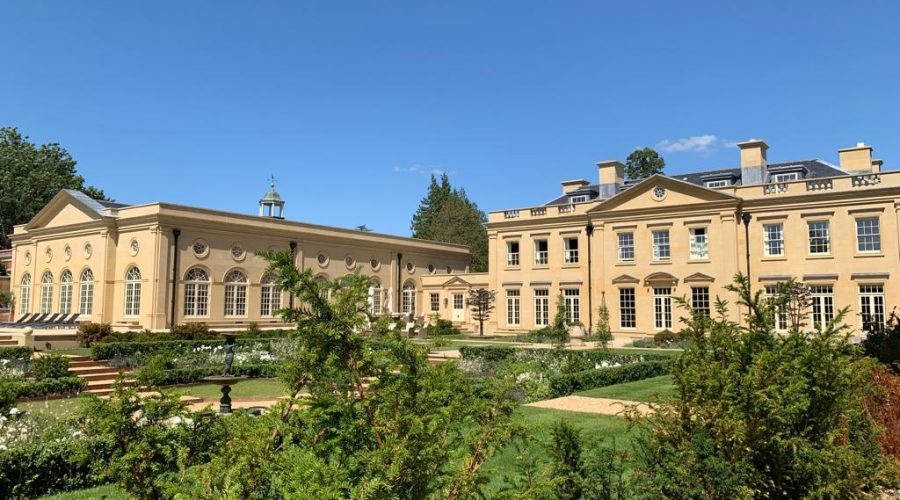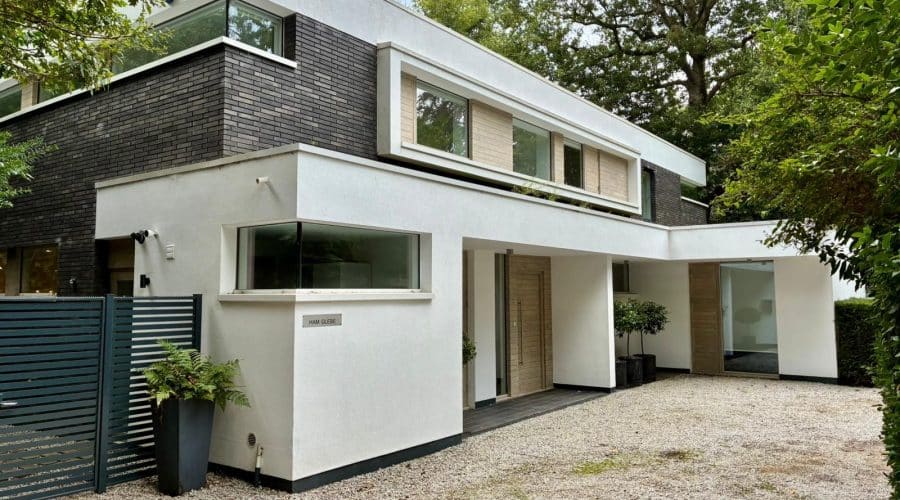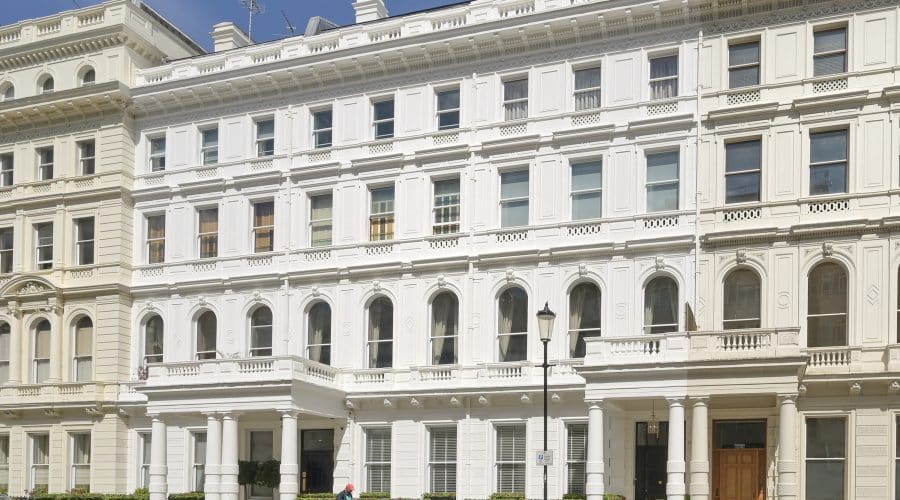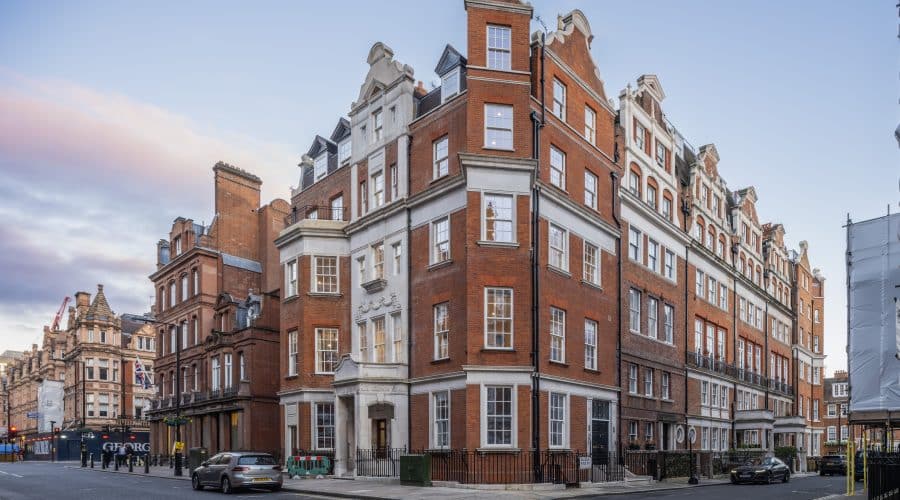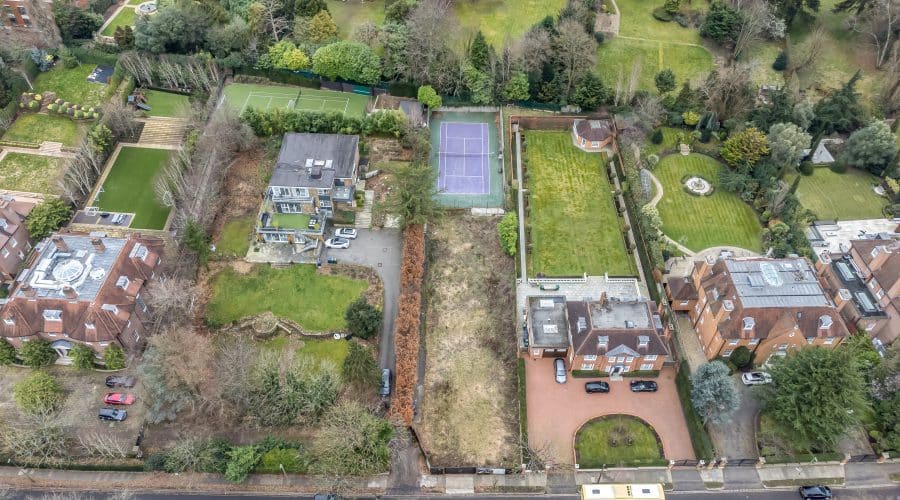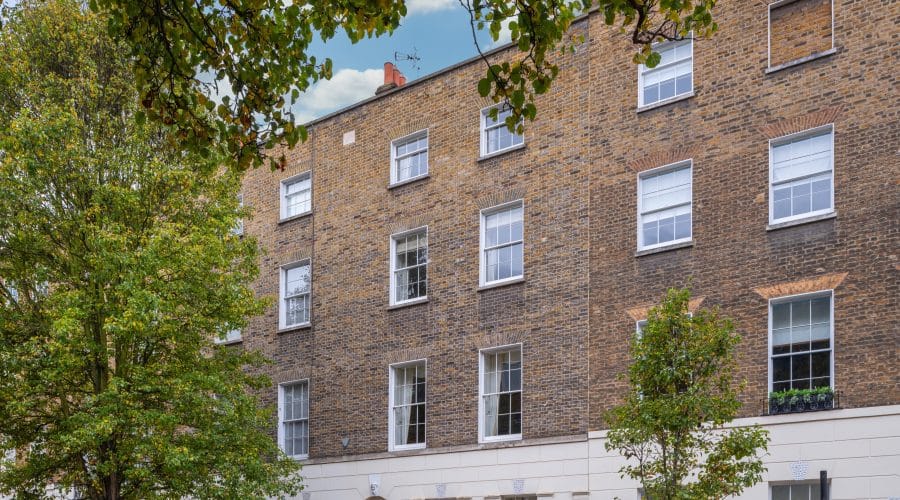Property magnates the Reuben Brothers are investing £1bn to move the dial in Mayfair. Can they succeed?
By Caroline Roux
To turn off Piccadilly and into White Horse Street in London’s Mayfair is to enter a different world. The first is a traffic artery lined with Tube station entrances, swish hotels and flashy car showrooms, where distracted tourists bump into polite couples heading to the Royal Academy of Arts. The second is a winding lane, its tiny shops — a dry-cleaner, a wine bar — quaint finds. But forgotten it is not.
On a sunny Friday in June, the latter’s slender pavement is busy with workmen communicating in all the languages of Europe, moving between a series of projects taking shape in the 1.3 acres of prestige land known as the Piccadilly Estate. This is the land of the Reuben Brothers.
The family is investing £1bn in this small, upmarket slice of London — creating apartments, a members’ club, a hotel and public realm. The project is coming to fruition at the very moment when its foreseen customers might be rather less available, thanks to the ending of non-dom status, and changes in taxation and stamp duty have hit the wealthy hard (for overseas buyers, stamp duty on property purchases can push north of 17 per cent). In the year to May 2025, the number of prime property sales above £5mn in London was 14 per cent lower than in the previous 12 months. The question “can they pull it off?” looms large.
The Reuben family, with a fortune of £26.87 billion, is Britain’s second richest, squeezed between the Hindujas at number one and Sir Len Blavatnik at number three. Iraqi Jews born in India, brothers David and Simon came to London in the 1950s and, from dealing in carpets and scrap metal and making their fortune in aluminium in the post-Soviet “wild east”, expanded into property and many other businesses besides.
The brothers, now well into their eighties, are known for watching and waiting, swooping in when the going gets tough for their competitors, with their ability to put cash on the table. It has secured them some significant gains in London, New York — and beyond. In 2015, they purchased the combined debt of the Plaza Hotel and the Dream Downtown hotel in New York, and Grosvenor House in London, after its owner Subrata Roy of Sahara Group was arrested and bail set at $1.6bn for its non-payment. It cost them $850mn. In 2020, they pounced again, this time on the Surrey Hotel, a star of the Upper East Side’s Golden Triangle, for $150mn cash ($65mn below asking price) when the owner failed to pay the rent. Investments in the US property market over the past seven years total more than $6bn.
It was in 2011 that they snapped up the Piccadilly Estate for £130mn, at a £20mn discount, from beleaguered businessman Simon Halabi. “It included the In and Out Club, 100 Piccadilly, some of the buildings behind that, and some in Shepherd Market, including the members’ club 5 Hertford Street,” says David’s youngest son Jamie, reeling off a list of landmarks. The first, known by its loud lettering out front, is soon to become a hotel and residences, and return to its original name Cambridge House. It is set to open early next year.
“My uncle has assembled the rest with patience, bit by bit,” continues Reuben. “We had the idea to establish a chic new quarter — cool, upmarket, authentic.” He pauses on the last word. “You don’t always get that around here.” He has a point — Mayfair is increasingly a district of division, where old-school elegance and charm rubs up against some fairly brash new clubs and restaurants.
Yet, according to buying agent Camilla Dell, founder of Black Brick Property Solutions, nowhere is more location, location, location than this part of town. “We would consider prime Mayfair to be Grosvenor Square, Mount Street, bits of Davies Street,” she says. “Off-patch” properties are a harder sell. And there are already a number of new-builds that have had properties on the market for a while, including 60 Curzon, on the north border of Shepherd Market, and One Mayfair, a development on Audley Square by British billionaire John Caudwell, where apartments begin at the £35mn mark.
Can the Reubens magic a newly meaningful part of Mayfair into being?
Americans are coming big time, the dollar is good. They love London and they buy in totally to the culture here.
I meet Reuben at One Carrington, a Reuben-built block of 28 apartments reached down a cobbled cul-de-sac off Shepherd Street. The red brick building, by London firm AHMM, fits politely between the existing 19th- and 20th-century buildings on what was once an NCP car park. Its generous square windows overlook a plant-filled courtyard by landscape architect Robert Myers. “The concept was for something that feels domestic, and small-scale,” says Reuben. “It’s about discreet living, not huge-scale apartments.”
Prices at One Carrington are around £3,000-£5,500 per square foot; one-bedrooms from £2.95mn up to four-bedrooms from £12.95mn. What Dell calls “around the corner” are 1 and 20 Grosvenor Square, converted into homes in the latter 2010s where prices are a heady £6,500-£7,500 per sq ft (local less-illustrious second-hand stock sits at the £2,500-£3,000 mark).
One Carrington might not have 1 Grosvenor’s supersonic allure, but it does offer membership to the Carrington Club across the road for business, fun and wellness — to be run by 5 Hertford’s Robin Birley. In Mayfair terms, these are entry-level properties, in a boutique building. “Hanover Square sold really well,” says Dell of the apartments that form part of the Mandarin Oriental, which opened there a year ago. “Because they were on for £3mn-£6mn.”
Tom Rundall, a partner at Knight Frank, which is selling the apartments at One Carrington, delicately spins the tough sales environment as he shows me around it. “London is a buying opportunity,” he says. “We’re more flexible around price than we were in 2014,” he continues, referring to the decade-old bubble. “We’ve had 30 viewings in the past week — Americans, Europeans and those from the Middle East. The sub-penthouse has sold. A two-bed has been bought by two Canadian brothers for their families to use.”
Jamie Reuben, who is 38, joined the family firm in 2018. Previously, he had started an emerging market hedge fund and some rumours point to him having had a place at Conservative HQ under Boris Johnson. (He denies this, but is a known Tory-party donor, purported to have given at least £750,000.)
Today he is dressed in a blue suit, white shirt and brilliant white trainers — all by Thom Sweeney, a men’s outfitters in Old Burlington Street in which he is an investor. “We have a racing business, Arena Racing, the largest racecourse business in the country,” he says, of other family assets. “Airports, Newcastle United football club . . . we’re not just niche real-estate developers.” He is very keen on Newcastle, both team and city — a United flag hangs in the lobby of the reopened art deco Surrey in New York.
Less playboy and more family and work-oriented than your average super-solvent thirtysomething, Reuben shifts between London, where he lives in Marylebone, and New York, where he has a place in NoHo. (His brother and sister, David Jr (45) and Jordana (46) are currently in Los Angeles developing the hell out of six acres of Century Plaza into residential and retail.) At weekends, he plays padel, the new sport of, if not kings, the high achiever.
The same year he joined the company, the family bought Mayfair’s Burlington Arcade — constructed as a safe shopping street for jewellery and fancy items in 1819, and still fulfilling a similar function. They paid £300mn, according to Trupti Shah, also 38, who looks after retail at Reuben Brothers. She has worked closely with Reuben, and together they have breathed new life into the arcade. “After Covid, we had six empty shops and then 11,” says Shah. “But the Reubens wanted me to wait for the right takers. I persuaded Borsalino — the Italian hat makers — to come in after a year-long negotiation.” It is a sign of its success that even Stephen Webster, the A-list jeweller, has moved there from Mount Street.
“I think, if I have a passion, it’s for restoring these important old buildings and streets,” says Reuben. “They are integral to the city and its history.” Another project, the conversion of Admiralty Arch, at the Trafalgar Square end of The Mall, into a Waldorf Astoria hotel, is also under way. “There will be a restaurant by Daniel Boulud on the roof,” says Reuben. “We will have views like no other.”
With masterful optimism, he talks up London’s continued viability. “Covid was tough, and post-Covid,” he says. “And the focus since has been on the cost of living. But we shouldn’t ignore the wealth traders, the foreign investors, the entrepreneurs, and all the visitors. They bring a lot culturally but also financially. We need to make them feel welcome here.”
“We’ve been quite successful in the UK over the years in offering good incentives, tax credits,” he adds. There might be a non-dom exit, but “Americans are coming big time, the dollar is good. They love [London] and they buy in totally to the culture here. All cities go through ebbs and flows.”
Shepherd Market, a stone’s throw from One Carrington, dates back to 1735. Reuben Brothers are part-financing pedestrianisation of the public realm areas with Westminster Council, upping the appeal of its few interconnected streets by adding new bijou, independent offerings to the old favourites like the L’Artiste Musclé, established in 1971 and a favourite of Apple Records as a party venue.
“We’re not going to spoil it with chains,” says Shah, who lives here. “We could do with a florist.” Cars can’t park after midday, making outdoor dining one of its assets. “I would have to talk most of my buyers into viewing One Carrington,” says Dell. “But these improvements at ground level will help.”
The Reubens don’t like publicity. David and Simon are practically invisible. At the launch of the Surrey, last October, Jamie gave a single interview. Our meeting today will be his only one in London. It is perhaps why he can’t resist the short walk to Cambridge House. The 1756 building, designed by Matthew Brettingham in the Palladian style for the Wyndham family, is Grade I listed. Its development into a 102 room hotel and seven residences has been a long affair. “It feels like we’ve been working on it for 250 years,” he says.
The restoration is detailed and extreme. It had been occupied by the Naval and Military Club until it sold to Simon Halabi in 1996. “It was a wreck, they’d been patching it up for years,” says Reuben. Twenty original marble fireplaces are currently with experts in the Thames Valley. And each has an overmantel mirror, dating back to the 1750s. “They take a year each to restore,” says site manager Paul Storey. Moulds are being made of original plasterwork. Walls are recreated in lath and plaster. And when the 24-metre-deep basement was excavated, a Thames sewer had to be diverted and then put back in place.
Reuben is entranced. “Peek up, you can see the ceiling being restored,” he says, pointing to sky-blue paintwork and delicate curls of white plaster. “As British people, we don’t always recognise how great London is, and what it’s got. I like to think that we’re making the best of it.”
